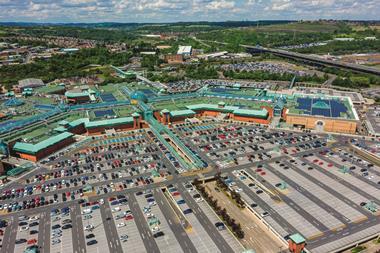UK cities and local authorities have set ambitious decarbonisation targets to meet the challenge of climate change and ensure a cleaner, more secure future for residents and businesses.

Significant investment is required to match the scale of change needed. While this presents a barrier for local government, it can be overcome by combining private investment and expertise with local knowledge and experience.
Bristol City Leap is one such solution: a joint venture between US clean tech company Ameresco and Bristol City Council launched in January to enable £1bn of investment in clean energy solutions over the next 20 years. The partnership will play a big role in decarbonising Bristol’s infrastructure, housing and commercial property by 2030, starting with council-owned property, which has a decarbonisation target of 2025.
In the next five years, we expect to see a £500m investment in the city’s infrastructure, including the expansion of Bristol’s heat network, new energy efficiency measures for public and private sector residential and commercial property and the development of renewable energy sites in the surrounding area.
The ambition is to have an impact beyond the city of Bristol. This first-of-its-kind partnership can be accessed by other public sector bodies and intends to create a scalable and replicable model for other cities to follow so they can reach decarbonisation targets.
The partnership is working to cut energy consumption of households and businesses by installing insulation, solar panels and heat pumps. Initially focusing on Bristol City Council’s corporate estate and social housing, the partnership will work with other public bodies such as schools and hospitals to reduce their carbon emissions.
Bristol City Leap has also begun the important work of engaging with the commercial property industry. This has started with private sector tenants, estate managers and property owners and this activity will scale up over the next 12 months. The partnership is working with property owners to provide a comprehensive approach to decarbonisation, from energy audit to finance and delivery.
Reducing carbon emissions is critical in terms of supporting UK and city region targets and ensuring a safer future for generations to come. With tenants, homebuyers and investors seeking environmentally friendly buildings, it also has the benefit of enhancing Bristol’s competitiveness as a clean, green place to live and work – boosting growth and improving the city’s economic resilience in a world of increasing energy price uncertainty.
Heating Bristol
A major part of Bristol City Leap is the expansion of Bristol’s heat network. In its infancy in the UK but widely adopted in Europe, this technology has the potential to provide heat directly from clean energy sources like air and water, with Bristol home to England’s largest water-source heat pump.
Instead of pumping gas into homes and businesses, a heat network provides direct heat through a network of pipes. It has the potential to provide up to 120 gigawatt-hours of low-carbon heat to Bristol households and businesses over the next five years, at a fair and stable price that ensures protection from price fluctuations.
This is the equivalent of around 80,000 homes, in addition to several large office buildings, schools and a health centre.
Another important part of decarbonisation is unlocking the potential for renewable power in the city. A holistic approach is needed here, combining small-scale sites like rooftop solar and large-scale projects such as wind turbines with local grid connections.
Community involvement is a crucial part of this mix of energy provision, so substantial investment will go into community-owned renewable energy projects to help residents play a part in Bristol’s journey to carbon neutrality.
The expansion of heat networks and rollout of energy efficiency measures in buildings must be accelerated to meet decarbonisation goals. In Bristol, large developments are being designed to connect to heat networks and use renewable technology for heat and power. For example, there are plans for 10,000 new homes to connect to the Bristol heat network as part of the 25-year Temple Quarter regeneration project, which will transform 600ha of Bristol’s brownfield sites.
A concentrated effort is also needed to retrofit existing buildings. With more than half of UK commercial property having an energy performance rating of ‘D’ or below, improving buildings’ energy efficiency while connecting them to a zero-carbon heat source cuts bills, helps meet legislative requirements and can make tenancies more secure – a triple win, socially, environmentally and economically.
Collaborative partnerships like Bristol City Leap can catalyse decarbonisation at a city scale by identifying, funding, delivering and integrating projects that reduce energy consumption, decarbonise heat and accelerate new connections to renewable energy.































No comments yet